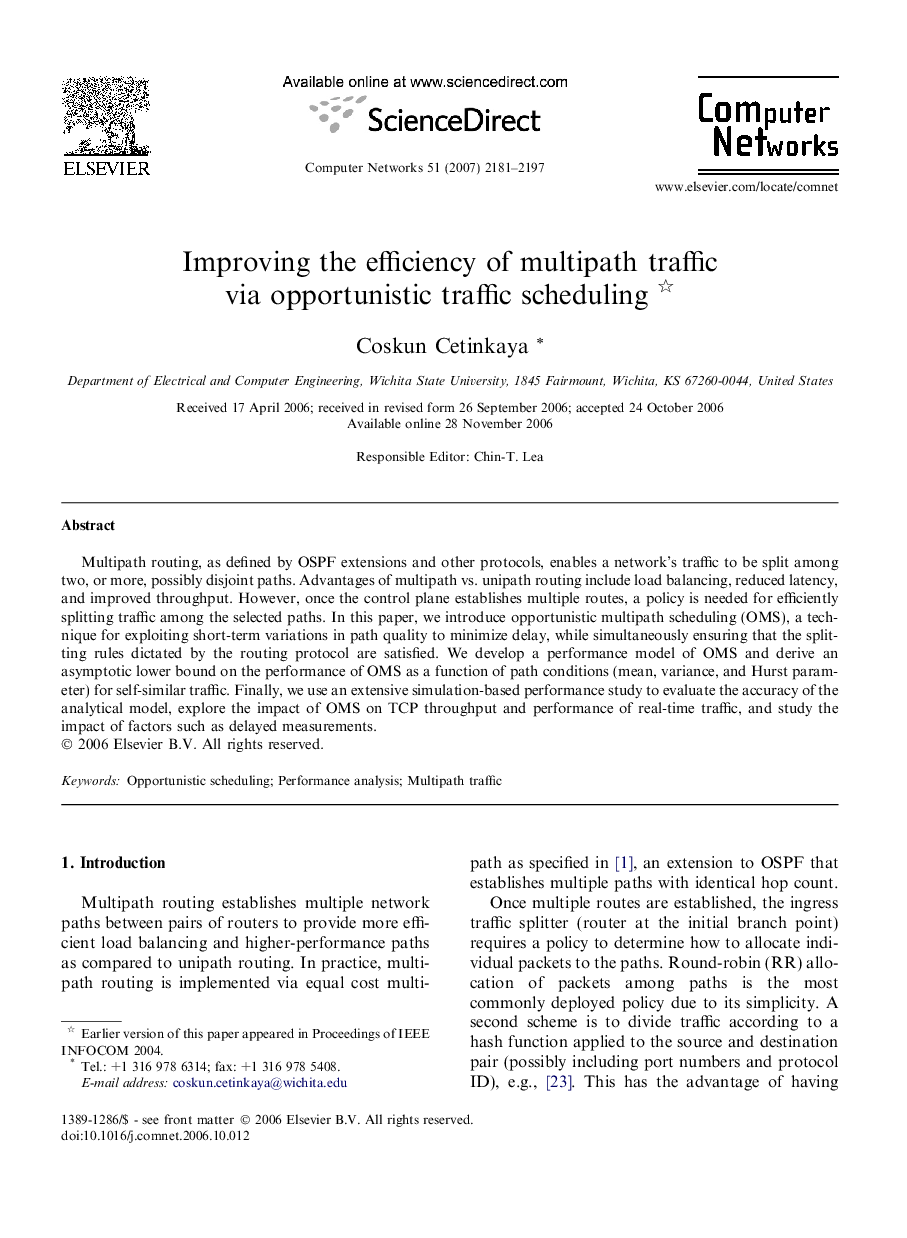| Article ID | Journal | Published Year | Pages | File Type |
|---|---|---|---|---|
| 452727 | Computer Networks | 2007 | 17 Pages |
Multipath routing, as defined by OSPF extensions and other protocols, enables a network’s traffic to be split among two, or more, possibly disjoint paths. Advantages of multipath vs. unipath routing include load balancing, reduced latency, and improved throughput. However, once the control plane establishes multiple routes, a policy is needed for efficiently splitting traffic among the selected paths. In this paper, we introduce opportunistic multipath scheduling (OMS), a technique for exploiting short-term variations in path quality to minimize delay, while simultaneously ensuring that the splitting rules dictated by the routing protocol are satisfied. We develop a performance model of OMS and derive an asymptotic lower bound on the performance of OMS as a function of path conditions (mean, variance, and Hurst parameter) for self-similar traffic. Finally, we use an extensive simulation-based performance study to evaluate the accuracy of the analytical model, explore the impact of OMS on TCP throughput and performance of real-time traffic, and study the impact of factors such as delayed measurements.
